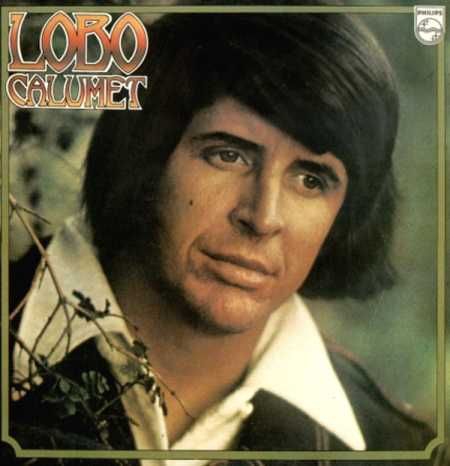“I’d Love You to Want Me” by Lobo is a timeless soft rock ballad that beautifully encapsulates the yearning and vulnerability of unrequited love. Released in 1972 as a single from Lobo’s album Of a Simple Man, the song became one of his most successful hits, reaching number two on the Billboard Hot 100 and securing its place as a classic in the genre.

From the very first notes, “I’d Love You to Want Me” draws listeners in with its gentle acoustic guitar intro, setting a mellow and introspective mood. The arrangement is elegant and understated, featuring soft strings and a steady, soothing rhythm. This simplicity allows the song’s heartfelt lyrics and Lobo’s distinctive vocal performance to shine.
The song’s lyrics tell a poignant story of longing and unfulfilled love. The opening lines, “When I saw you standing there / I about fell off my chair,” immediately convey a sense of awe and attraction. As the song progresses, the narrator reveals his deep desire for reciprocation, captured in the chorus: “I’d love you to want me / The way that I want you.” This earnest plea is both touching and relatable, resonating with anyone who has ever experienced the pain of loving someone who doesn’t feel the same way.
Lobo’s vocal delivery is a key element of the song’s enduring appeal. His voice, warm and emotive, carries a sense of sincerity and vulnerability that perfectly matches the song’s lyrical themes. The way he delivers the chorus, with a mix of hope and resignation, adds a layer of emotional depth that elevates the song beyond a simple love ballad.
“I’d Love You to Want Me” achieved significant commercial success upon its release. In addition to its high ranking on the Billboard Hot 100, it also topped charts in several other countries, including Canada and Germany. Its widespread popularity helped to establish Lobo as a prominent figure in the early 1970s soft rock scene.
The song’s simplicity and emotional honesty have ensured its lasting legacy. Over the years, it has been covered by various artists and featured in numerous movies and TV shows, further cementing its place in popular culture. Its timeless quality allows it to continue resonating with new generations of listeners, who find solace and connection in its themes of love and longing.
In conclusion, “I’d Love You to Want Me” by Lobo is a masterful soft rock ballad that has stood the test of time. Its gentle melody, heartfelt lyrics, and sincere vocal performance create a song that is both deeply personal and universally relatable. Whether you are experiencing the ache of unrequited love or simply appreciating the beauty of a well-crafted love song, “I’d Love You to Want Me” offers a timeless listening experience that continues to touch hearts and minds. Its enduring popularity is a testament to its emotional resonance and the skillful artistry of Lobo, making it a cherished classic in the annals of soft rock music.
Let’s sing along with the lyrics!
When I saw you standing there
I ’bout fell out my chair
And when you moved your mouth to speak
I felt the blood go to my feet
Now, it took time for me to know
What you tried so not to show
Something in my soul just cries
I see the want in your blue eyes
Baby, I’d love you to want me
The way that I want you
The way that it should be
Mm, baby, you’d love me to want you
The way that I want to
If you’d only let it be
You told yourself years ago
You’d never let your feeling show
The obligation that you made
For the title that they gave
Baby, I’d love you to want me
The way that I want you
The way that it should be
Mm, baby, you’d love me to want you
The way that I want to
If you’d only let it be
Now, it took time for me to know
What you tried so not to show
Now something in my soul just cries
I see the want in your blue eyes
Baby, I’d love you to want me
The way that I want you
The way that it should be
Mm, baby, you’d love me to want you
The way that I want to
If you’d only let it be (oh)
Baby, I’d love you to want me
The way that I want you
The way that it should be
Mm, baby, you’d love me to want you
The way that I want to
If you’d only let it be
